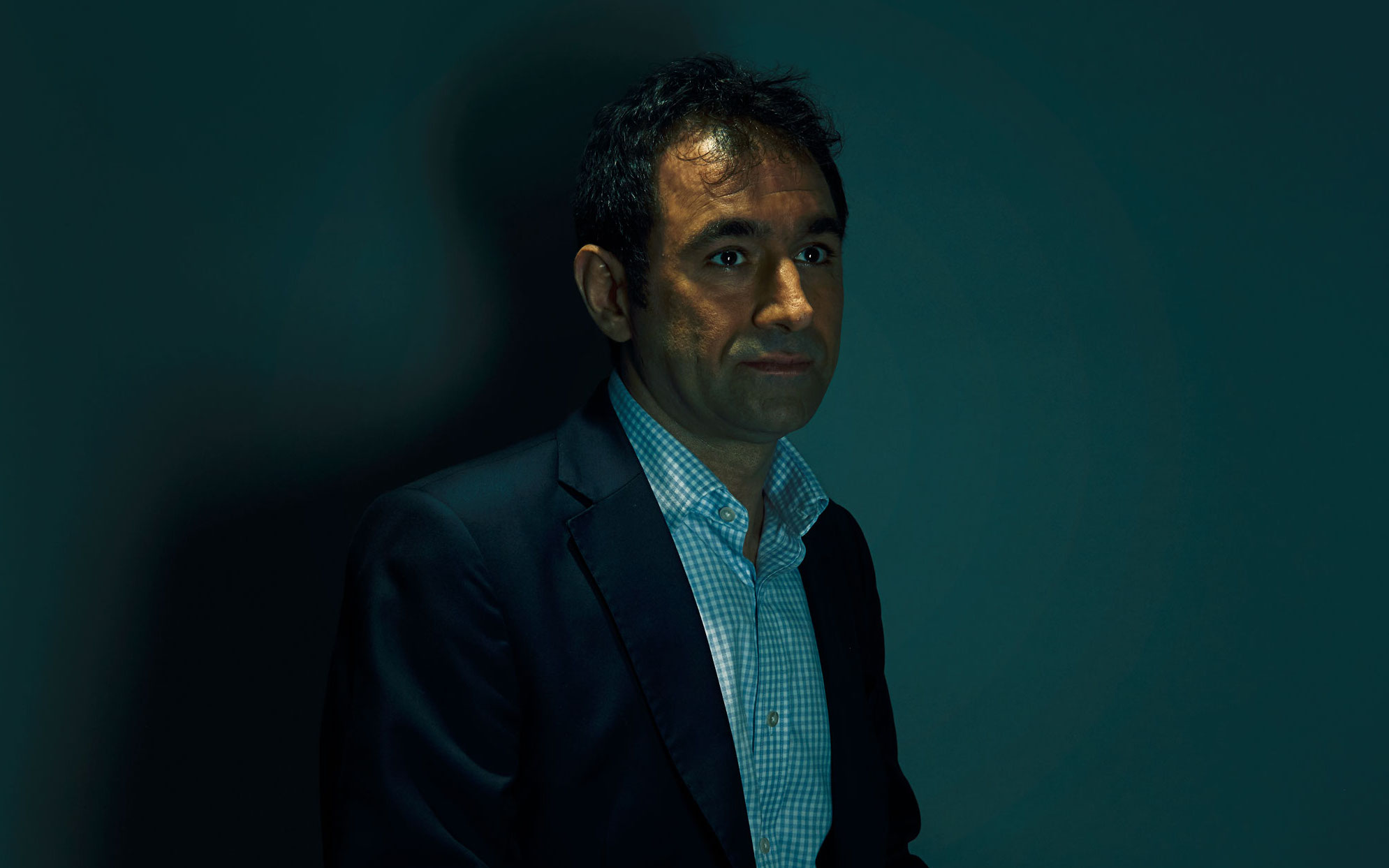Hossein Rahnama might hold the key to living forever: by turning our digital data into an eternal avatar. The founder and CEO of Flybits believes that in the near future a person’s digital data footprint – social media presence and Internet interactions – will provide the basis for a personalized artificial intelligence, preserving the individual’s identity long after they die.
Rahnama’s “Augmented Eternity” project takes a person’s digital trail and maps it onto a neural network. The more data, the more specific and accurate the AI. Rahnama believes that younger people will soon have amassed enough digital data to more or less accurately simulate their personality.
This kind of futuristic technology from his company, Flybits, has earned Rahnama a name as one of Canada’s Top 40 Under 40 and the Smithsonian’s 6 Innovators to Watch.
For Hossein Rahnama, Context is Key
“If you look at the advancements in the AI space, the problem they have is they don’t understand context,” Rahnama explains. “I think we’re finally realizing that instead of building massive AI labs, we need to bring four or five complementary skillsets together that can help understand context when building these systems.”
Rahnama’s company Flybits focuses on this aspect of machine learning. In order to take an individual’s data and turn it into AI, the machine needs to understand context. A simple response or utterance could mean many different things, depending on tone and situation.
This is Rahnama’s primary area of interest. Thus, his work combines theories of computer science, psychology and emotion, and human behavior. Bringing this areas together makes AI models more adaptable to individual situations.
An Early Interest in Computers
As a child in Iran, Rahnama already knew that he had a special interest in computers and machines.
“I was raised by my mother (a retired academic) and father (a retired computer engineer and entrepreneur) in Tehran,” Rahnama says. “They instilled in me a passion for education and, being surrounded by my father’s computers, I was able to apply it at an early age.”
This interest in computers developed into a passion when Rahnama’s family moved to Canada after the 1979 Iranian revolution. “My desire for knowledge grew as I explored my new country,” he recalls.
In a short time, Rahnama graduated from Ryerson University with a PhD in Computer Science. He still occasionally teaches at Ryerson. But Rahnama’s primary interest now is developing new AI practices to launch machine learning into the future.
Hossein Rahnama Forsees New Uses of Augmented Eternity
When the British television drama Black Mirror first played with the idea of a virtual identity, the show depicted a young woman reaching out to an AI version of her recently deceased husband. This life-after-death aspect of the technology’s potential certainly warrants consideration.
But Rahnama sees other applications as well.
With enough data, AI avatars may become a useful tool in the workplace. “Augmented Eternity” could allow employees to interact with a facsimile of their company’s CEO. They could ask questions of a high-ranking member of their company, even without their physical presence. Whether the person in question is alive at the time or not, the avatar can provide information and guidance based on their personality and knowledge.
Of course, the accuracy of an AI “avatar” will depend a lot on the volume of data collected. For now, these neural networks have a lot of learning to do. But Rahnama believes that human beings will soon accumulate enough data to turn this science fiction into reality.
“We are generating gigabytes of data on a daily basis,” he says. “We now have a lot of data, we have a lot of processing power, and we have a lot of storage capability.”



